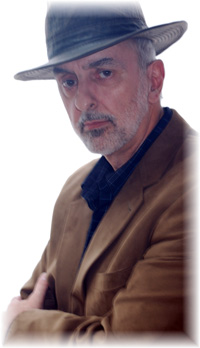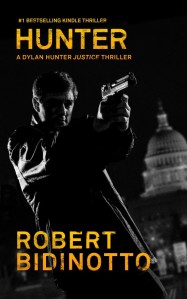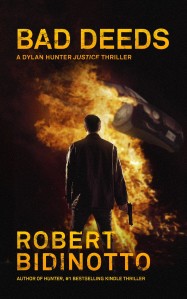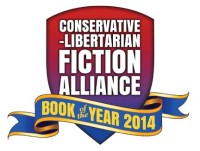Interviewers have been asking me which writers have been most influential in my own development as a novelist. In coming posts, I shall pay homage to those authors. But first, I thought I would take a journey back many decades, to the earliest inspirations for “the Vigilante Author.”
Growing up in a dying mill town in western Pennsylvania was an oppressive experience. And in our blue-collar home, there were few windows that opened to a world of wider possibilities.
That wasn’t my parents’ fault. Their lives had been brutally tough, their own horizons painfully limited. My dad was born on a nearby farm and never made it to high school. For many years, he worked with his hands—stone mason, soldier in WWII, carpenter, railroad brakeman. Mom never finished school, either. She displayed early signs of musical talent, but there was no money for piano lessons. She spent her young adulthood on the assembly line at the “the pottery”—the local china factory.
After the war, they met, married, and settled in a tiny ranch house. Later, they bought and ran a local tavern, to help put my brother and me through college. They worked like mules; there was little time for anything else. So, culture was an unknown. There were no books in our house. We didn’t go to plays or concerts. The local radio stations featured farm reports and Patsy Cline.
Like most parents of that generation, they desperately wanted their kids to have more than they did, so they valued education. But the local offerings were limited. Each morning, I rode an old yellow bus with bad shocks to a school where the biggest club was the Future Farmers of America. I was eternally lucky that the school had a quirky librarian with political passions, an art teacher who played classical recordings during class, and an unforgettable history teacher who opened my mind to the world of ideas.
But the cultural inspiration of my youth came from the TV action heroes of the 1950s.
As a toddler, I became addicted to TV. Mom would park me in my little walker in front of our massive Philco. She told me that somehow I figured out when my favorite shows would come on, and I would scoot the whole walker forward to change the channels. That small screen introduced me to the concept of vigilante heroes—appropriately, in black and white.
My earliest imprinted images of manhood included the Lone Ranger, Roy Rogers, Robin Hood, the Range Rider, Hopalong Cassidy, Wyatt Earp, “Lash” LaRue, “Cheyenne,” and Tarzan. There was a Saturday serial cliffhanger featuring the adventures of an amazing guy with a “jet pack” on his back, “Commando Cody.” Meanwhile, Walt Disney’s Mickey Mouse Club served up a regular diet of Zorro and Davy Crockett.
And then there was Superman. Boy, did I love Superman.
Later, I discovered other comic-book heroes—vigilantes all. There was Batman (still my favorite), the Flash, the Green Lantern, Aquaman, the Phantom, and Spider-Man. Novels—especially science fiction and action thrillers—came along later, during adolescence.
I can’t tell you how important such experiences were to a lonely little kid with a big imagination, growing up in that four-room ranch house. Those heroes told me that life didn’t have to be a series of boring, empty routines. That there was more to the world than the claustrophobic rural township where I grew up. That the universe was a huge place filled with adventure and romance, open to infinite, exciting possibilities.
But, most importantly, that you always had to stand up for justice.
Like millions of other kids from that era, I took all this very seriously.
I still do.
I offer this personal preamble to my forthcoming survey of great thriller novels because such fare is universally dismissed as the literary equivalent of junk food. Certainly, almost no one takes action thrillers seriously or believes that they have anything important to impart to readers. They are pure “escapism,” it is said.
Well, all works of fiction transport the reader to another time and place. And, yes, a mental journey into an imaginary world can offer a few hours reprieve from boring routines and unhappiness. Call that an “escape,” if you will.
However, for the ambitious soul, fiction offers more than an escape. It provides the fuel and the road map to set out on his own real-life journey to a different, better place. For the morally ambitious soul, it can provide a lot more: the inspiration and insight to become a better person.
Of all genres of popular fiction, action thrillers are my favorite, precisely because they present an extravagant, open-ended, no-limits vision of human potential. Just as TV, film, and comic-book heroes can spark passion and idealism in children, thrillers can keep the fires of that passion and idealism burning in adults—at least, in those adults who have not surrendered to cynicism.
For example, many members of America’s armed forces and intelligence agencies love the novels of thriller masters Vince Flynn and Brad Thor, which feature the heroic counterterrorist adventures of Mitch Rapp and Scot Harvath, respectively. Our soldiers identify with and are inspired by their stoic, determined, take-no-prisoners approach to fighting the War on Terror.
Similarly, as proof of fiction’s direct inspirational power, Pentagon brass visited the set of Fox TV’s former hit series “24” several years ago to complain about the tough-guy exploits of fictional counterterrorism agent Jack Bauer. It seems that soldiers who were fans of Bauer were resisting official, Politically Correct military indoctrination about treating and interrogating captured terrorists respectfully, preferring Jack’s more (shall we say) “direct” approach.
Almost without exception, thriller heroes are exemplars of individualist values and virtues. They think for themselves and stand by the judgments of their own minds. They take great risks for their highest values. They stand alone against obstacles and opposition that would overwhelm ordinary people. They are resourceful and relentless, creative and courageous. Though they are hard-headed realists, they’re invariably principled and committed to some private, inviolate code of honor.
It’s therefore no accident that so many action-novel heroes also act as vigilantes, to one degree or another. Thriller protagonists typically find themselves forced into the “lone maverick” role: They are transformed by circumstantial necessity, becoming law-breaking rebels who must defy arrogant authorities, indifferent bureaucracies, and choking rules in the interests of justice.
Sadly, we live today in morally rootless world, a world that needs such images and examples in order to help us recover our ethical bearings. It is a terrible and telling commentary on our times that so many of us seek our exemplars of moral principles in fictional stories about people who break rules and laws.
I wrote HUNTER: A Thriller in that spirit and tradition. Though a tale for grown-ups, its morality is firmly rooted in those days during the early 1950s that I spent glued in front of that big old Philco with the tiny screen, mesmerized by the Lone Ranger and Zorro and Superman. For they were the moral inspirations of this Vigilante Author.
———————————
This post is adapted from an article published originally in The New Individualist, April 2007. © 2007, The Atlas Society.

 Photo (c) by Debbie Scott
Photo (c) by Debbie Scott




